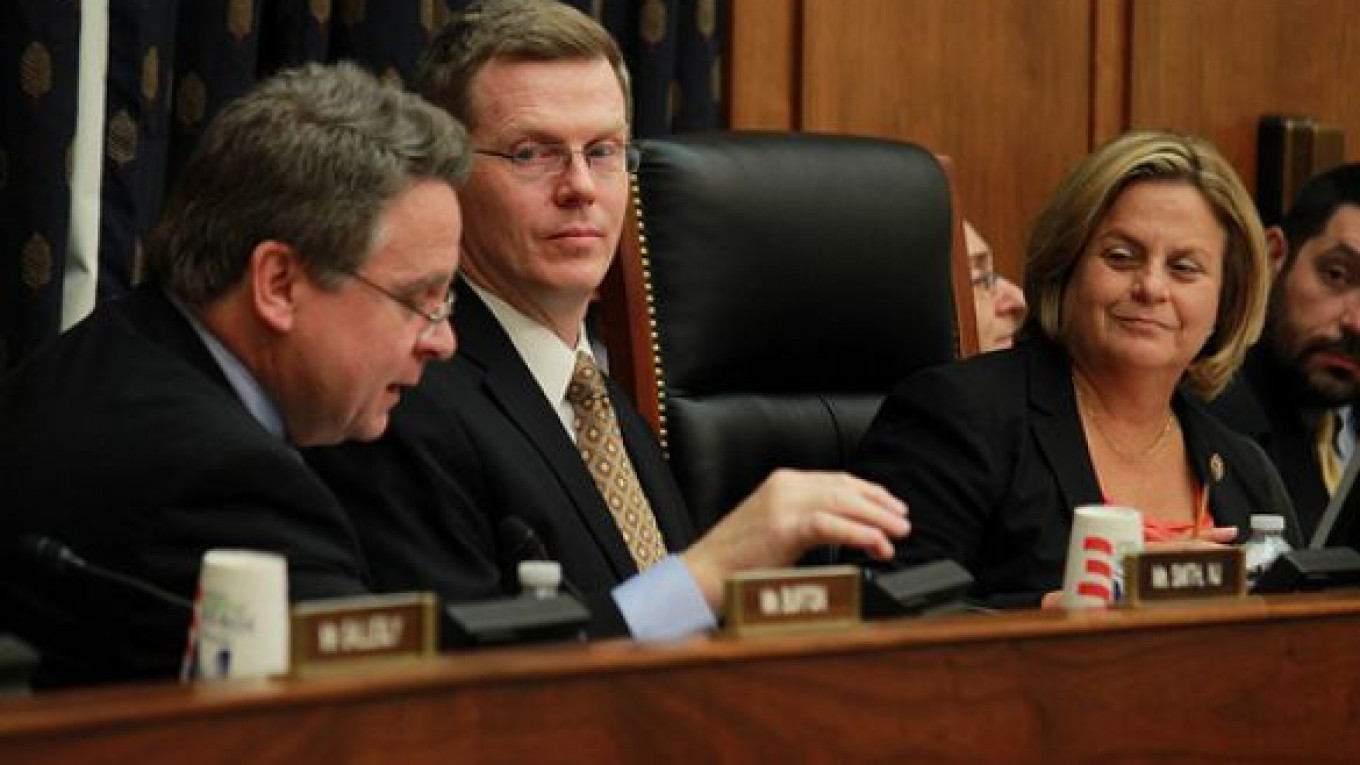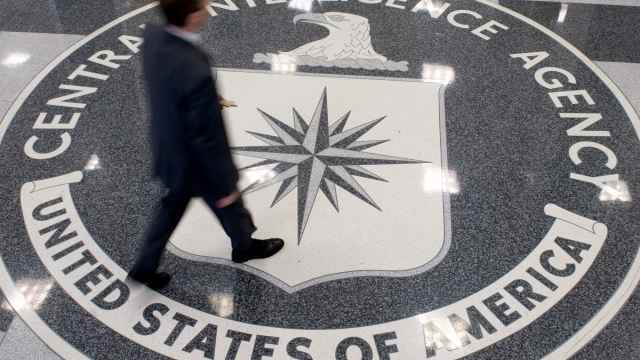WASHINGTON — A bill to punish Russian officials for alleged human rights abuses would badly damage U.S.-Russian ties and hurt U.S. exports, business groups said Tuesday, two days before a key congressional panel will vote on the measure.
The bill would require the United States to deny visas and freeze the assets of Russians linked to the detention and death of Sergei Magnitsky, an anti-graft lawyer who died in a Russian jail in 2009 under suspicious circumstances.
The legislation is expected to win approval Thursday in the House of Representatives Foreign Relations Committee, clearing the way for the measure in the full House, either on its own or as part of a trade bill.
Bill Reinsch, president of the National Foreign Trade Council, whose members include major U.S. exporters such as Boeing, Microsoft and Caterpillar, told reporters Tuesday the Magnitsky bill was “seriously flawed.”
He argued that it would make it even harder to get Russia’s cooperation on issues ranging from Iran’s nuclear ambitions to Syria’s bloody crackdown on dissent.
U.S. companies also fear they will lose sales coming from Russia’s entry into the World Trade Organization because Moscow will retaliate by turning to other suppliers, Reinsch said.
The issue is coming to a head because the White House wants Congress to establish “permanent normal trade relations” with Russia by removing the former Soviet republic from a Cold War-era human rights law known as the Jackson-Vanik amendment, which tied bilateral trade relations to the right of Russian Jews to emigrate freely.
While the House panel is acting first on the measure, the legislation was crafted largely by Senator Ben Cardin, a Maryland Democrat, in response to Magnitsky’s death.
“Our preference is for Congress to lift Jackson-Vanik in a clean trade bill, but we understand the intent of Senator Cardin’s bill regarding Sergei Magnitsky and share the same goals of promoting respect for human rights in Russia, and specifically seeking accountability for those implicated in the wrongful death of Mr. Magnitsky,” Caitlin Hayden, a spokeswoman for the White House National Security Council said.
Hayden noted that the administration has already used existing authorities “to ensure that no one implicated in Mr. Magnitsky’s death can travel to the United States.”
Many members of Congress don’t want to drop Russia from the older human rights law without replacing it with new human rights legislation. Meanwhile, Russian officials have made it clear that the Magnitsky bill is unacceptable.
USA Engage, a broader business coalition of 670 member companies and trade associations, also warned against the bill, which it fears could move through Congress on a faster track than the legislation to establish permanent normal trade relations.
However, Senate Foreign Relations Committee Chairman John Kerry did not follow through on an earlier plan for action on the legislation in May and still has not scheduled a vote in his committee. Both the full House and the full Senate would have to approve the measure for it to become law.
“The history of these things is once they get to the floor, they pass overwhelmingly,” so business groups are hoping to modify the legislation to make it less objectionable to Moscow before it reaches that point, Reinsch said.
One alternative might be for lawmakers to drop the asset freeze and focus simply on the visa ban, said Cory Welt, associate director of the Institute for European, Russian and Eurasian Studies at George Washington University’s Elliott School of International Affairs.
That could be modeled after an executive order issued by President Barack Obama in August 2011, which spelled out the administration’s intention to deny visas for individuals guilty of human rights violations, Welt said.
A Message from The Moscow Times:
Dear readers,
We are facing unprecedented challenges. Russia's Prosecutor General's Office has designated The Moscow Times as an "undesirable" organization, criminalizing our work and putting our staff at risk of prosecution. This follows our earlier unjust labeling as a "foreign agent."
These actions are direct attempts to silence independent journalism in Russia. The authorities claim our work "discredits the decisions of the Russian leadership." We see things differently: we strive to provide accurate, unbiased reporting on Russia.
We, the journalists of The Moscow Times, refuse to be silenced. But to continue our work, we need your help.
Your support, no matter how small, makes a world of difference. If you can, please support us monthly starting from just $2. It's quick to set up, and every contribution makes a significant impact.
By supporting The Moscow Times, you're defending open, independent journalism in the face of repression. Thank you for standing with us.
Remind me later.






